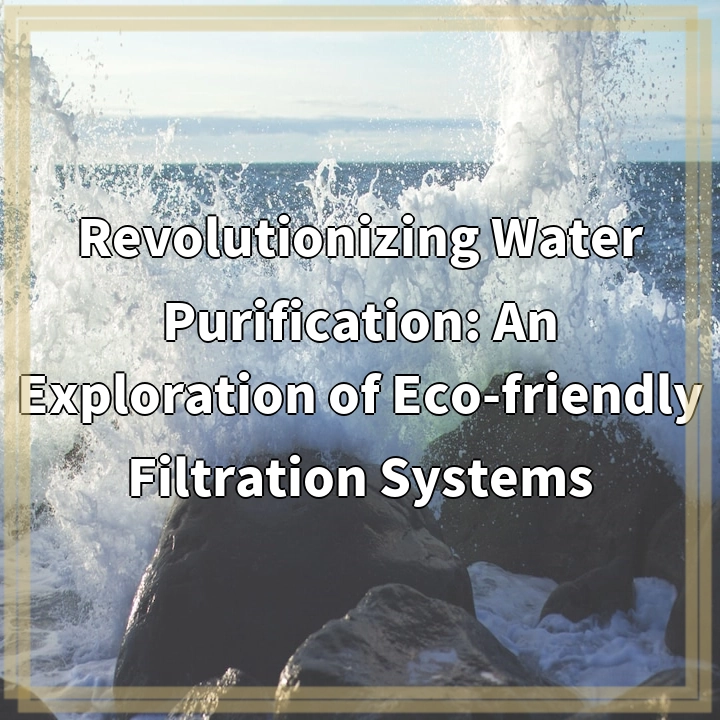
What it is:
Water purification is an essential process that ensures access to clean and safe drinking water. Traditional water filtration systems have long been used to remove impurities and contaminants from water sources. However, these conventional methods often rely on chemicals or energy-intensive processes, leading to environmental concerns. To address these issues, eco-friendly filtration systems have emerged as an innovative solution.
Real-world problems:
Despite the widespread use of traditional water filtration systems, several challenges persist in the realm of water purification. One major issue is the dependence on chemical disinfectants and pollutants, such as chlorine and fluoride, in conventional treatment processes. While these chemicals play a vital role in killing harmful microorganisms, they can have adverse effects on human health and the environment when present in excessive quantities. Additionally, the disposal of used filter cartridges from conventional systems contributes to plastic waste and landfill accumulation.
Another problem relates to the energy consumption associated with traditional water purification. Many filtration methods require significant amounts of electricity to operate, leading to a high carbon footprint. This is particularly relevant in areas where reliable access to electricity is limited, making it challenging to provide clean water to communities in need.
Fortunately, eco-friendly water filtration systems offer possible solutions to these real-world problems. By employing innovative technologies and sustainable practices, these systems strive to minimize or eliminate the use of harmful chemicals while also reducing energy consumption and waste generation.
One example of an eco-friendly filtration system is the use of activated carbon filters. Activated carbon, derived from renewable resources like coconut shell or bamboo, can effectively remove contaminants and improve water taste without relying on chemical disinfectants. Additionally, advancements in membrane filtration techniques, such as reverse osmosis and nanofiltration, have enabled more efficient removal of pollutants while reducing energy requirements.
Furthermore, the adoption of reusable filter cartridges and biodegradable materials in eco-friendly systems helps curb plastic waste and promote a circular economy approach. By designing filters that can be easily cleaned, refilled, or recycled, these systems contribute to a cleaner and more sustainable water treatment process.
In conclusion, the exploration of eco-friendly water filtration systems is crucial in addressing the environmental and health challenges associated with traditional water purification methods. By minimizing chemical use, reducing energy consumption, and promoting sustainable practices, these systems have the potential to revolutionize water treatment and ensure access to clean and safe drinking water for all.

Solutions to Real-world Problems:
Eco-friendly water filtration systems offer innovative solutions to address the environmental and health challenges associated with traditional purification methods. These solutions include:
1. Chemical-free filtration:
Eco-friendly systems minimize or eliminate the use of harmful chemicals by employing alternatives like activated carbon filters. These filters effectively remove contaminants and improve water taste without relying on chemical disinfectants.
2. Energy-efficient technologies:
Advancements in membrane filtration techniques, such as reverse osmosis and nanofiltration, have enabled more efficient removal of pollutants while reducing energy requirements. This helps mitigate the environmental impact of water purification processes.
3. Reusable and biodegradable materials:
The adoption of reusable filter cartridges and biodegradable materials in eco-friendly systems helps reduce plastic waste. By designing filters that can be easily cleaned, refilled, or recycled, these systems contribute to a cleaner and more sustainable water treatment process.
By implementing these solutions, eco-friendly water filtration systems aim to revolutionize water purification, promote sustainable practices, and ensure access to clean and safe drinking water for all.















